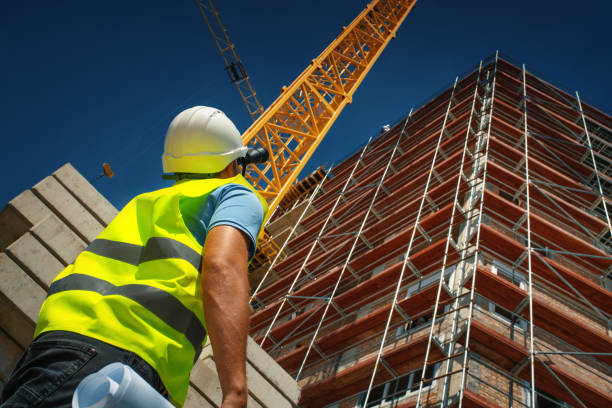10-Jul-2023 Awareness on applying zero-rate on the supply of building material/equipment
zero-rate building material equipment supply housing units ministry of housing mazaya program new building certificate supplier nbr's authority installation documentationLearn about the new regulations regarding the zero-rate application on the supply of building materials/equipment for housing units. This blog sheds light on the conditions and requirements that must be met for the zero rate to be applicable. Find out how to qualify, obtain necessary certificates, and ensure compliance with the latest changes. Stay informed and fulfill your tax obligations accurately by understanding the updated VAT system. Consult official resources the National Bureau of Revenue (NBR) provides for comprehensive information.

Overview:
As of January 1st, 2022, a significant change has been implemented regarding the application of the zero-rate for the supply of building materials/equipment related to housing units. This change specifically applies to housing units provided by the Ministry of Housing and those purchased through the Mazaya program. This article aims to shed light on the conditions and requirements that must be met for the zero rate to be applicable to these supplies.
Application of Zero-Rate:
The zero-rate is applicable to the supply of building material/equipment for housing units that were not pre-equipped with certain essential equipment necessary for habitation. This includes items like air conditioners, kitchens, and specific types of flooring such as ceramics. Such housing units are classified under Article No. (76) of the Executive Regulations of the VAT Law as unhabitable.
Conditions for Zero-Rate Application:
To ensure eligibility for the zero-rate on the supply of building material/equipment related to these housing units, the supplier must adhere to the following conditions:
- 1. Obtain a New Building Certificate:
The supplier must obtain a new building certificate, which can be prepared by the property owner or the main contractor. This certificate should contain following information.
- a. The address of the land on which the building will be or is being constructed. This should be the full address (including block number, street number etc.), not a post office address or “in-care of” address. When this is not available, a map should be attached clearly marking the land and its location.
- b. The name and address of the registered owner of the land. Again, the address should be full, not simply a post office box or “in-care of” address.
- c. A description of the building to be constructed. This should state the type (residential, commercial, industrial etc.), the number of floors and the total area of the building.
- d. The actual or expected start and end dates for the development.
- e. The name, address and VAT Account Number of the main contractor. Where there is no main contractor and the property owner will employ multiple contractors directly, this should be stated instead. In such a case, the property owner should state his VAT Account Number, if registered for VAT.
- f. A certification statement stating that, to the best of the knowledge and belief of the issuer, the building is a new building for the purposes of Article 76 of the VAT Executive Regulations.
- g. The date of issue of the certificate
The certificate should be signed by an authorized representative of the main contractor or by the property owner as the case may be.
- 2. Supply and Installation by the Same Supplier:
The building material/equipment must be both supplied and installed by the same supplier. It is the responsibility of the VAT registered supplier to ascertain whether the housing unit lacks the necessary equipment for habitation.
- 3. Obtain Relevant Contracts and Documentation:
The supplier must obtain a certified copy of the enjoyment/usufruct contract between the Ministry of Housing and the beneficiary of the housing service. In the case of housing units purchased through the Mazaya program, a copy of the notarized sales contract or the sales contract between the real estate developer and the purchaser, along with a property evaluation report, must be obtained.
- 4. Non-Pre-Equipped Housing Units:
The housing unit should not have been pre-equipped with the necessary equipment for it to be considered habitable. The purpose of the supply should not be to replace equipment that has already been installed in the relevant housing unit.
Exclusions and NBR's Authority:
It is important to note that housing units in which the necessary equipment has already been installed and are considered habitable are excluded from the above treatment. Consequently, supplies of building material/equipment related to such housing units are not eligible for zero-rating. Furthermore, the National Bureau of Revenue (NBR) reserves the right to review or amend the policy outlined above as deemed necessary.
Conclusion:
The recent changes in the application of the zero-rate for building materials/equipment in housing units have been introduced to ensure fair and consistent treatment within the VAT system. By understanding and adhering to the specified conditions and requirements, suppliers can accurately determine the eligibility for the zero-rate and fulfill their tax obligations accordingly. It is crucial for all concerned parties to stay informed about these developments and consult the official resources provided by the NBR to ensure compliance.
APMH can help you to comply with return filing compliance to be done to avoid any future penalty or action from the tax authorities. Please contact us for further clarification in this matter. You can reach us on our email ID pratik@apmh.in or keta@apmh.in our contact number at Bahrain is + 973 66765313 OR +973 33875768. You can visit our website www.apmhconsulting.com.
